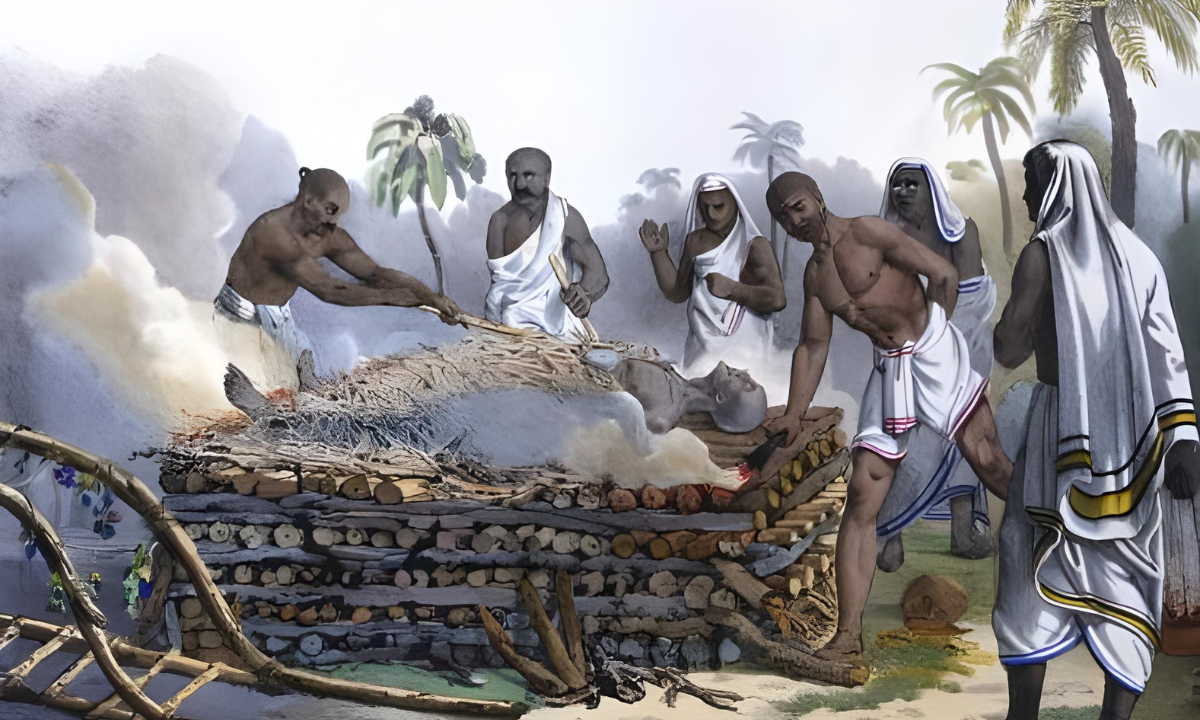Over the past couple of decades, funeral services around the world have undergone tremendous changes to fulfill changing societal needs and preferences. Funeral services in India are a good example of this transformation: while traditional customs are being fused with modern practice to create a moving tribute to a loved one.
Funeral services in Bangalore and across the country are changing over time and this article will discuss how funeral services have been adapted and what to look forward to in the future.
Traditional Funeral Practices Are Understood.

India’s funeral practices have deep, cultural and religious roots. There are specific customs that often vary from community to community and from region to region, with attached rituals, prayers, and ceremonies. Traditionally, the rites were performed in families’ homes, or at local cremation grounds; the emphasis on close family involvement, and the community, was strong.
But the funeral services in India are changing their landscape, a legacy of modern values, urbanization, and technology.
Development of Modern Funeral Homes
It is one of the most notable changes in funeral services in India: the rise of funeral homes. But they offer a range of services, from preparing the deceased to organizing memorial ceremonies. Such personalisation of the decedent’s funeral home has become commonplace in modern times with emphasis on the personalisation that better reflects the decedent’s life.
Personalised Services
Funeral services are getting more personalised. In addition, there are themes, music selection, and of course, floral arrangements that have been chosen by families to carry the theme of their loved one’s passions and interests.
This changed model of care, focused on individualized service, allows families to get more of a feel of it and helps them close the loop by being involved and honouring the deceased in a very unique way.
Pre-Planning Options
Today many funeral homes offer pre-planning services in which an individual can work to express their wishes in advance. And it also works for families — it offloads the emotional load that’s so difficult in situations like this.
Not only does planning let someone cover the financial arrangements that might be needed, but it also means that the final send-off can be done in the way that the deceased wanted, a trend that is picking up in India’s funeral service business.
Technology in Funeral Services: The Role.
Technology has completely changed the way funerals are conducted. In the digital age, there are a few additions that improve the grieving and remembrance of the departed.
Virtual Memorials
As digital platforms rise, virtual memorials have also proven to be very popular. Online tribute pages are created by families and friends can share memories/photos/messages on them.
Not only does this open up the reach of people who wish to pay their respects to those they hold dear, even those sidelined by geography, but it also gives people a permanent digital space to remember.
Live Streaming Funerals
Many funeral homes adapted to the effects of COVID-19 by beginning to offer live streaming services so mourners who could not attend could participate remotely. This is an adaptation that will probably continue to stay on its heels as strictures ease because it doesn’t matter where people are.
Funeral services in India involve a blend of tradition and convenience including such initiatives, in which the families can also reach out to a bigger crowd of relatives and friends.
Funeral Service Practices in Sustainability
Funeral services are also working on environmental consciousness. Traditional funerals are causing a lot of environmental damage, and many families are now considering eco-friendly options.
Green Burials
Natural decomposition and its use of biodegradable materials are also a trend in the world and India — green burials, as they are known. These practices often include very basic wooden caskets, to return the body to the earth without chemicals and any elaborate funeral arrangements.
A lot of people appreciate the sustainable approach and this resonates with so many other people who are probably concerned about environmental issues, especially the younger generation, who are thinking about the way by which funeral services in India are conducted in India, and it is a sign of turning this paradigm.
Cultural Sensitivity and Diverse Practices
Funeral service providers in India are adjusting to accommodate ever more multicultural and religious practices as the country becomes more so. It becomes important to understand and respect these differences so that we can meaningfully offer services.
Diverse Traditions Incorporated
Funeral services in India are becoming more sensitive to the many kinds of customs in India. It includes knowing other rituals connected with different communities like Hindu Muslim, Christian, and others. Funeral service providers include services that help the family to perform the ceremony with their custom and tradition so the ceremony will be respectful and based on the beliefs of the deceased and their family.
Education and support to grieving families.
The value of emotional support and education to families going through grief has also reached funeral service providers. Today, nearly every organization provides grief counseling and related resources to help people and families cope with loss successfully.
Workshops and Seminars
Funeral service providers can back up their offering by hosting workshops and informational seminars, which give families the tools they need to process their grief and understand the funeral process, as a way of compensating for a funeral industry that is still lacking in transparency. This initiative simplifies the complex aspects involved, and thus, allows families to think rationally and make life decisions about funeral services in India.
Support Groups
Many funeral homes, in addition to providing the information, are creating support groups to which people seeking comfort afterward can gather and share their experiences with each other. They are so important in fostering healing in that they form community and understanding — the healthiest response to trauma.
Conclusion
The rise of funeral services in India combines tradition with modernity. Families are joining in the honouring of their loved ones through time-honoured customs and, at the same time, are adopting new practices and using new technologies to meet their own needs in the present.
Aiding in this adaptability is the fact that changing societal values are reflected in such adaptability, and what’s more, families also have tailored options that speak more deeply to this day.
Since moving forward, it’s evident that funeral services in India will evolve according to the emotional, cultural, and environmental needs of families. This evolution in service is not about saying goodbye differently; it’s about developing experiences that are meaningful remembered, and wonderful in service to the lives we love.
In today’s modern society where loss is a shared commonality but an extremely personal experience, the significance of funeral services has never been so great. The living and the dead exuded the values that life in modern times demanded and preserved the memories of those who had passed.
Kaashimukthi funeral Services in Bangalore provides befitting arrangements for people to have a blissful passage to the glorious afterlife and care for their family after they have bid adieu to their loved ones. We offer tailored solutions, somehow combining the ancient tradition with modern amenities, while respecting the particular cultural needs of each family and allowing a joyful farewell.

Madhu is an Entrepreneur, a Mentor, a Writer and an Aspiring Car Race Driver. He is Deeply passionate about leveraging Technology and Human Centred Design to make complex care and End of Life Planning easier. With the ultimate aim of Improving the quality of Life in the Twilight years. Madhu is highly educated and Alumni of IIM-Bangalore, Sikkim Manipal University and Bangalore University besides a Rich Industry Experience in the field of Product Management, Design, Supply chain, Finance, Commercial Management and Funeral Services.

